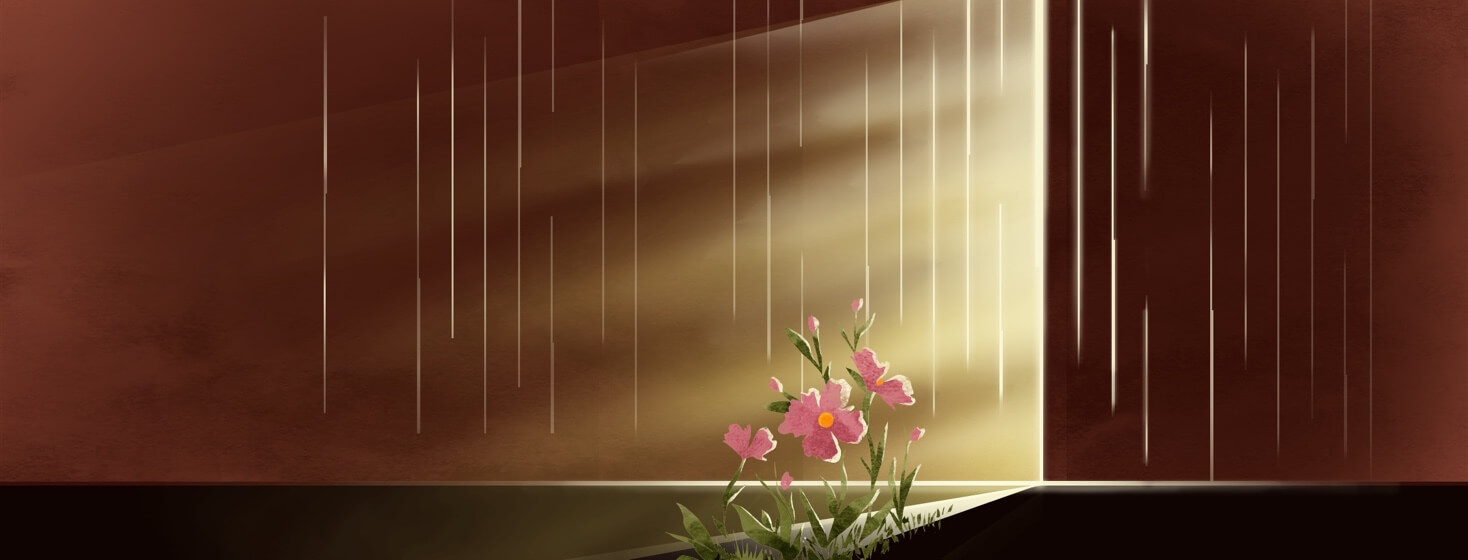A Masterclass in Survival
The act of survival can be summed up in 3 words – never giving up! Survival is deeply rooted in mental, physical, and psychological strength; navigating dark times and unpleasant experiences until you find the light at the end of the tunnel. Recently, I made a conscious decision to hit pause and step back, taking a moment to reflect on my journey to survival.
My perception might be skewed, but I don't believe anyone has an easy life. Just hear me out. I think some people have means while others have opportunities, but no human being has the happiness trifecta – contentment in mind, body, and soul/spirit – because happiness itself is subjective. Regardless of status, privilege, or power, one thing rings true – life always finds a way to humble you.
Sickle cell survival tips
Sickle cell is a progressive chronic illness that will consume every shred of happiness if you let it. But even at low life points, try to remember that sickle cell is a disease that's out of your control. Since you cannot change your diagnosis, you can try altering how you react to its symptoms.
"When we are no longer able to change a situation, we are challenged to change ourselves." - Viktor Frankl
1. Don't get caught in the happiness trap
Life is all about balance, and that includes emotions. To truly appreciate happiness/joy, you have to experience sadness. So, the next time you have an off day or a few off days, think of them as a right of passage.
Bad days are a testament to being alive and we all have them. You didn't wake up and choose sickle cell disease (SCD); it was just an unfortunate game of random genetic assignments. Try to stop blaming yourself and break out of the "why me?" mentality.
Lessons from 'The Happiness Trap'
One of my all-time favorite reads is the book 'The Happiness Trap' by Russ Harris. It is centered around acceptance and commitment therapy (ACT), a form of mindful psychotherapy that helps you stay focused on the present moment and accept thoughts and feelings that show up without judgment. When left to my own devices, I'd run away from my problems and feelings, believing that I couldn't be happy until certain idealistic conditions were met.
Applying acceptance and commitment therapy in my life
For example, there were days when I'd lie in bed eagerly waiting for pain/discomfort to subside before I started working on various tasks. Moments after taking an Advil, I'd start beating myself up (mentally), processing negative emotions like disappointment and laziness, all while losing focus on my recovery.
The ACT theory helps you move through difficult emotions so you can put energy into healing instead of dwelling on the negative. In layman's terms, you commit to facing the problem head-on rather than avoiding your stressors. Stop searching for an archetypal feeling of happiness constructed by society and prominently highlighted on social media. Follow your heart and honor your own values.
2. Just do it
Living with a chronic illness is synonymous with limitations, and sickle cell anemia is one of many complex diseases that is not particularly straightforward.
SCD significantly impacts your mental and physical health. Treatment and recovery are not linear concepts, often leading to frustration for many patients. If you've ever watched a boxing match, you will notice each player dancing around the ring, observing their opponent but still on guard while they plot their next big swing. Just like boxing, survival is all about mastering the fundamentals.
Hard lessons in persistence and perseverance
For my own survival, I had to learn hard lessons in persistence and perseverance while I tried to find an advantage. Every time sickle cell presented another health complication, I found a way to adapt. Keeping things honest, the road to recovery was paved with patience, grace, self-compassion, and resilience. I promise you, it was not an overnight achievement!
Fear of dying fueled my actions
After battling a mycobacterium avium complex (MAC) infection for 18 months, I started to notice the progression of my symptoms and felt my lungs, heart, and kidneys take a brutal beating. Using my fear of dying to fuel my actions, I instinctively sent an email to the SCD research coordinator for the National Heart, Lung, and Blood Institute at the National Institutes of Health (NIH), highlighting the rapid decline of my health.
Full disclosure, I didn't know anyone at the NIH but after months of suffering, I just wanted a better quality of life. All I did was bet on myself because I didn't want to die without fighting for a chance to live. I am rather ordinary, with no status, power, or means, but what I have is willpower. And it got me there. Always remember that champions aren't born; they are made.
3. Create a survival kit
Sometimes we forget how far we've come because our memory simply fails us. Forgetting is such a common occurrence in daily life – whether it's your phone, keys, password, or an important date – it happens. Time plays a key role in retrieving old memories, which is why our long-term memory is surprisingly stable.
However, navigating a chronic illness means facing challenges. To protect us, our minds can sometimes bury traumatic events involving pain and suffering. What that means is when we face a new challenge, we can sometimes forget how we survived a similar experience.
What goes in a survival kit?
A survival kit is everything you need to cope – a journal, music, meditation, prayer, therapy, books, etc. – a personal toolbox of key elements that match your survival strategy. Just as your favorite meal has a specific recipe that allows you to re-create it time and time again, a survival kit can help you re-ignite feelings of perseverance, happiness, strength, and resilience.

Join the conversation